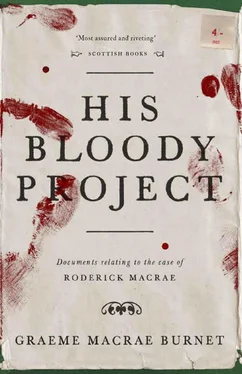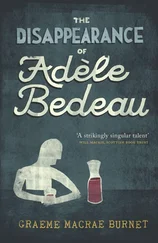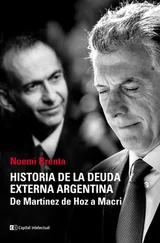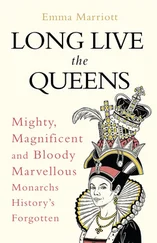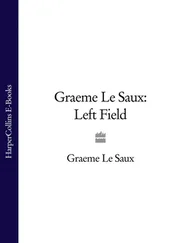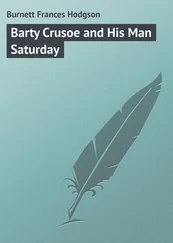Graeme Burnet - His Bloody Project
Здесь есть возможность читать онлайн «Graeme Burnet - His Bloody Project» весь текст электронной книги совершенно бесплатно (целиком полную версию без сокращений). В некоторых случаях можно слушать аудио, скачать через торрент в формате fb2 и присутствует краткое содержание. Год выпуска: 2015, Издательство: Contraband, Жанр: Современная проза, на английском языке. Описание произведения, (предисловие) а так же отзывы посетителей доступны на портале библиотеки ЛибКат.
- Название:His Bloody Project
- Автор:
- Издательство:Contraband
- Жанр:
- Год:2015
- ISBN:нет данных
- Рейтинг книги:5 / 5. Голосов: 1
-
Избранное:Добавить в избранное
- Отзывы:
-
Ваша оценка:
- 100
- 1
- 2
- 3
- 4
- 5
His Bloody Project: краткое содержание, описание и аннотация
Предлагаем к чтению аннотацию, описание, краткое содержание или предисловие (зависит от того, что написал сам автор книги «His Bloody Project»). Если вы не нашли необходимую информацию о книге — напишите в комментариях, мы постараемся отыскать её.
A brutal triple murder in a remote northwestern crofting community in 1869 leads to the arrest of a young man by the name of Roderick Macrae. There’s no question that Macrae is guilty, but the police and courts must uncover what drove him to murder the local village constable.
And who were the other two victims? Ultimately, Macrae’s fate hinges on one key question: is he insane?
His Bloody Project — читать онлайн бесплатно полную книгу (весь текст) целиком
Ниже представлен текст книги, разбитый по страницам. Система сохранения места последней прочитанной страницы, позволяет с удобством читать онлайн бесплатно книгу «His Bloody Project», без необходимости каждый раз заново искать на чём Вы остановились. Поставьте закладку, и сможете в любой момент перейти на страницу, на которой закончили чтение.
Интервал:
Закладка:
Now, aside from my visits from my advocate, Mr Sinclair, I have little human contact. This morning, however, I was interrupted in my labours by a visit from the prison doctor. He was a genial man with ruddy cheeks and unruly whiskers. He introduced himself as Dr Munro and informed me that he was required to ascertain the state of my health. I told him that I was quite well, but he nevertheless asked me to remove my shirt and conducted a thorough examination. As he busied himself around me, I could smell his breath, which had the sweet stench of fresh manure, and I was relieved when he completed his examination and retreated from me. He then put a series of questions to me regarding my crimes and I gave my customary responses. Now and again he took a pewter flask from the inside pocket of his coat and swigged from it. He noted my answers in a little book and did not seem in the least perturbed by anything I told him. When he had concluded his questions he folded his arms and regarded me with some interest. He asked me if I was sorry for what I had done. I told him I was not and, in any case, it mattered little whether I was sorry or not, what was done could not be undone.
‘That is quite true,’ he said. After some moments he added, ‘You are quite the curiosity, Roderick Macrae.’
I replied that I was not a curiosity to myself, and that he was likely as much of a curiosity to me as I was to him. At this he laughed jovially to himself and not for the first time I was surprised by the affable way I was treated, as if I was guilty of no more than the theft of a pat of butter.
* * *
Towards the end of the yellow months, Mr Gillies paid a visit to my father. It was early evening and Jetta was clearing away the bowls from our evening meal. My father was taken aback by the arrival of the schoolmaster, who appeared in the doorway, still holding the reins of his garron. I was sent outside to tether the pony and, having done so, I remained by him a few minutes, stroking his neck and murmuring in his ear. When I went inside, Mr Gillies was sitting on the bench at the table and Jetta was preparing him a cup of tea. A bannock had been set on a plate in front of him. My father stood awkwardly in the middle of the room, fidgeting with his pipe, unwilling to sit in the presence of his better. Mr Gillies was making various enquiries of Jetta and telling my father what a pleasure it had been to teach her. When he saw me in the doorway, he said in a jovial manner, ‘Here’s the boy!’
He then asked my father if he would not sit down, and my father took his place at the head of the table.
‘I have noted that since our term has resumed, Roddy has not returned to school.’
My father puffed steadily on his pipe. ‘He is not a child,’ he said.
‘That is quite true and as such he is no longer required to attend school,’ said Mr Gillies. ‘However, perhaps Roddy has told you of the conversation he and I had at the end of the last school term?’
My father replied that I had not told him of any conversation. Mr Gillies then looked towards me and invited me to join them at the table.
When I had sat down, he continued. ‘Our discussion concerned your son’s future, that is, with regard to his continuing education. Did he not mention this to you?’
‘He did not,’ said my father.
Mr Gillies then looked at me and furrowed his brow. ‘Well,’ he said in a breezy tone, ‘your son has shown considerable potential in his school work, potential which in my view it would be shameful to squander.’
My father glared at me as though I had committed some misdemeanour or was guilty of conspiring with the schoolmaster behind his back.
‘Squandered?’ he repeated, as if the word was entirely alien to him.
Mr Gillies looked around our dim abode, quite aware of the trap which my father had set for him. He took a sip of his tea before answering.
‘I mean simply that were he to continue his education, he might, in the future, have a greater number of paths from which to choose.’
‘What sort of paths?’ My father knew very well what sort of paths Mr Gillies meant. I have no doubt he was vaguely aware of my achievements in the classroom, but he had never shown any interest in them or offered me any praise.
‘I have no doubt that Roddy could aspire to become a…’ — here, he cast his eyes towards the roof-trees as if he was contemplating the question for the first time — ‘… to become a minister or a schoolmaster. Or anything he wished.’
‘To become someone like yourself?’ said my father, rudely.
‘All I mean, Mr Macrae, is that certain options would be open to him.’
My father shifted his weight on the bench. ‘You mean that he might become something better than a crofter,’ he said.
‘I would not say better, Mr Macrae, but different certainly. I put this to you only to be assured that you are aware of the opportunities afforded to your son.’
‘We have no use for opportunities here,’ said my father. ‘The boy is required to work on the croft and earn money for his family through his labour.’
Mr Gillies responded by saying that perhaps it might be useful to ask what I would like to do. At this my father got to his feet.
‘We shall do no such thing,’ he said.
Mr Gillies did not rise from his seat. ‘If it is a question of money,’ he said, ‘certain arrangements can be made.’
‘We have no call for your charity here, Mr Schoolmaster.’
Mr Gillies opened his mouth to speak, but then thought better of it. He nodded, as if to accept that the matter was closed, and stood up. He stepped towards my father and offered him his hand, which was refused.
‘I did not intend to give offence, Mr Macrae.’
My father made no answer and Mr Gillies, having bid good evening to myself and Jetta, who for the duration of the conversation had occupied herself with the washing of our bowls, took his leave.
I accompanied him outside on the pretext of assisting him with his pony. I wished him to know that I was grateful for his visit, but had I been asked I would have agreed with my father that I was now required to work for the family and that such things were not meant for the likes of us. In any case, none of the boys of my age in the parish attended school and I would have felt foolish sitting among the children. Nor did I wish to become a man like Mr Gillies with his weak features and pink, flabby hands. He thanked me for untethering his pony and told me that should I wish to return to school I would be very welcome and that arrangements could be made to pay the fees. I am sure that he did not expect to see me again and in this he was correct. I watched him climb onto his pony and ride slowly out of the village. His legs reached almost to the ground, so that he cut a quite comic figure. The garron plodded along with the characteristic gait of the Highland pony, as if expecting at any moment to strike its head on a low beam.
My father’s plans for me to contribute to the income of the household proved futile. Soon after the conversation with Mr Gillies he secured a position for me for the duration of the stalking season. I was to report at first light to the ghillie’s lodge and this I did. The ghillie was a tall man with narrow eyes and a thick, wiry beard, speckled with grey. He was wearing tweed breeches with thick woollen stockings and stout brogues. His waistcoat was unbuttoned and he held a pipe with an S-shaped stem in his left hand. He asked my name and I replied that I was Roderick Macrae of Culduie. He looked me up and down and told me to wait in the courtyard at the back of the Big House.
I continued through the grounds feeling, despite the sanction of the ghillie, like a trespasser, but no one challenged me. The courtyard was accessed through a stone archway to the right of the main entrance. I found myself in a cobbled yard with stables along one side and, on the other, windows looking into the kitchens of the house. I did not wish to press my nose against the glass, but there appeared to be a great deal of activity within. I leaned against the wall to the right of the kitchen door and did my best to look as if I belonged there. I could hear the horses shifting and whinnying in their stalls. I imagined them to be great thoroughbreds and I longed to enter the stables and look at them, but did not do so for fear of being reprimanded. Presently another boy, a little older than myself, arrived. He did not speak, but stared at me quite openly. He leaned against the wall of the stable, placing the sole of his right boot against it so that it formed a triangle. This attitude made him appear quite at ease in his surroundings, so I mimicked it. After some minutes, the boy took a small pipe from the pocket of his jacket. He made a thorough examination of it, before putting the stem in his mouth and chomping noisily on it. There was no tobacco in the bowl, or if there was, he had made no attempt to light it. Nevertheless, I took this display as confirmation of his worldliness and was suitably impressed. Later, when the march through the glen brought us to talking, he explained that there was no need to light a pipe to glean the benefits of tobacco. As long as the pipe had been previously used, all that was required was to suck vigorously on it.
Читать дальшеИнтервал:
Закладка:
Похожие книги на «His Bloody Project»
Представляем Вашему вниманию похожие книги на «His Bloody Project» списком для выбора. Мы отобрали схожую по названию и смыслу литературу в надежде предоставить читателям больше вариантов отыскать новые, интересные, ещё непрочитанные произведения.
Обсуждение, отзывы о книге «His Bloody Project» и просто собственные мнения читателей. Оставьте ваши комментарии, напишите, что Вы думаете о произведении, его смысле или главных героях. Укажите что конкретно понравилось, а что нет, и почему Вы так считаете.
